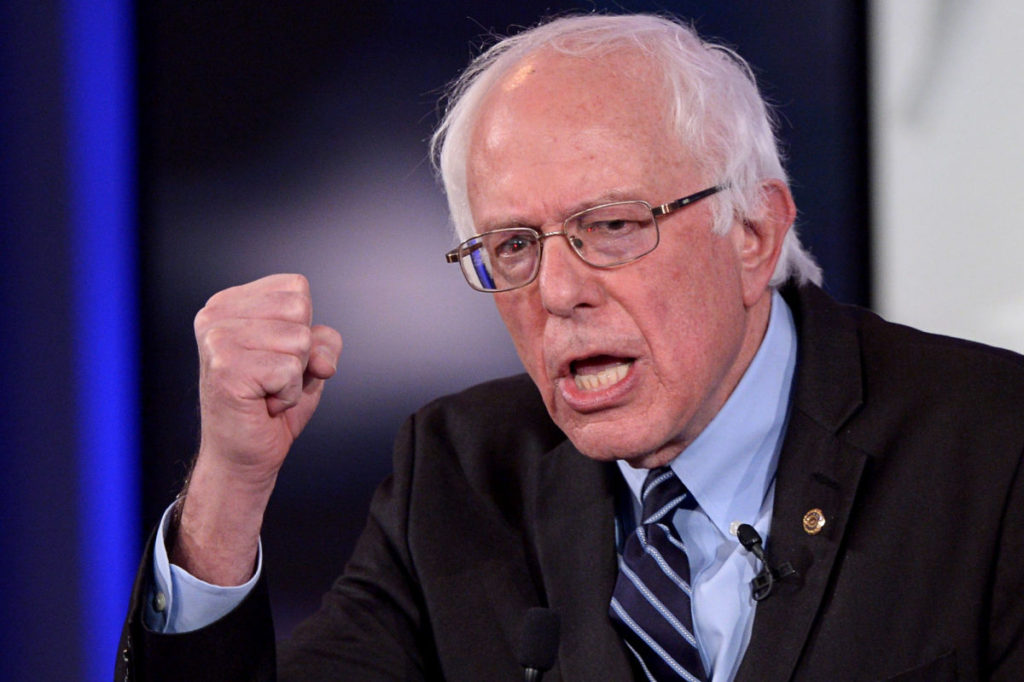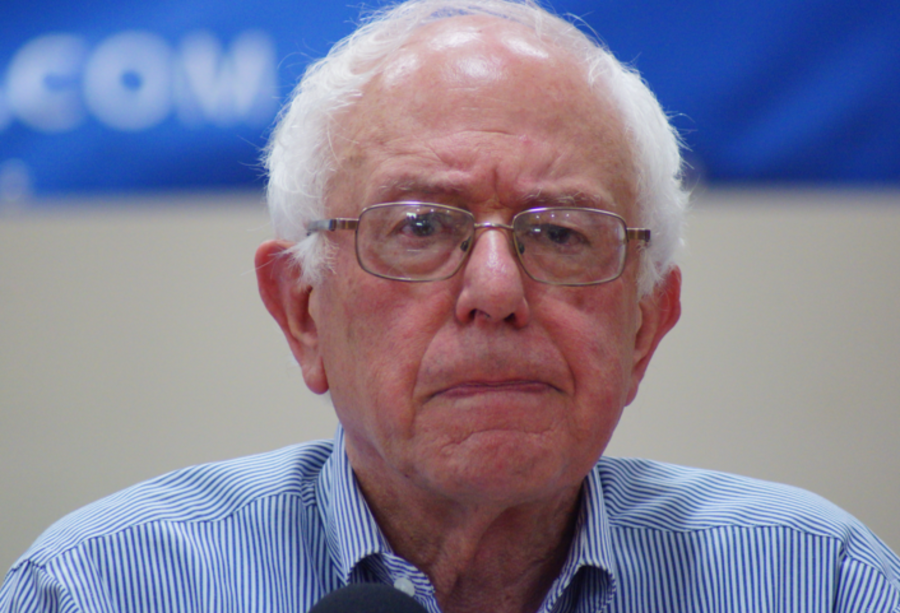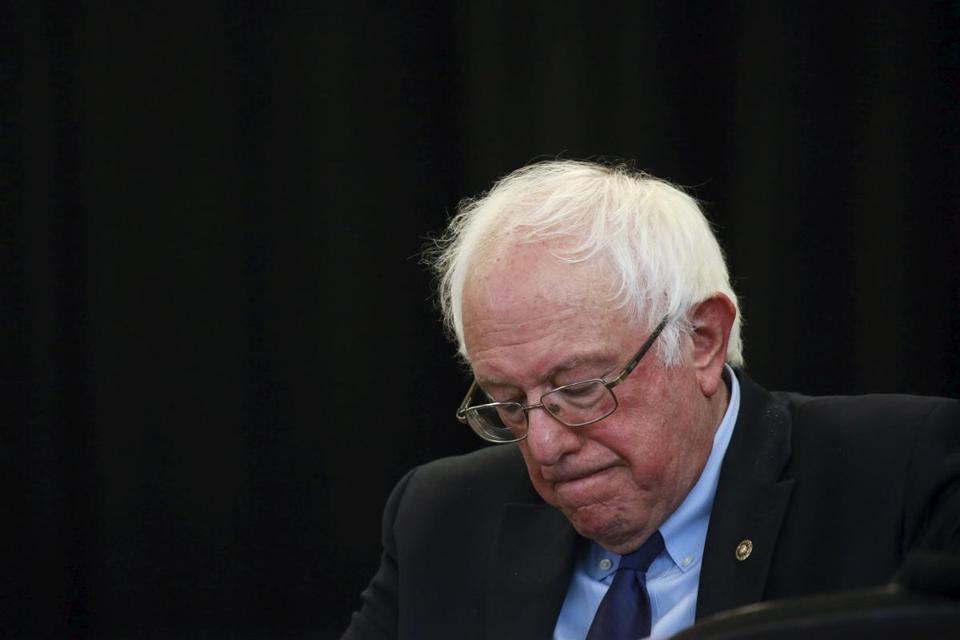
The Bernie Sanders candidacy is over but has left wide-ranging downstream effects. These include a resurgence of class consciousness and realisation of the necessity of a class analysis in frontal politics.
Can the aborted candidacy of Bernie Sanders in the 2020 U.S. presidential election be looked at as merely a thrust to his party’s attenuating working class support base? Isn’t it a left foot forward that there is a resurgence of a grassroots campaign for class consciousness, the necessity of a class analysis and placement of inequality as a vital policy-concern? Hasn’t the campaign cast an indelible influence on future direction of the frontal politics for, so far dominated by private capital, Democratic Party? He has emerged as a voice that interrogates the immoral structures of the prevailing capitalist socio-political order in a novel ideological frame. Even the socialists in the U.S. who were ambivalent on his candidature conceded that he stirred up the conflict between the working and capitalist class to a degree that is unprecedented in recent history. Lenin’s words that there are decades when nothing happens. There are weeks when decades happen, seemed to come alive. Long overdue people’s issues: healthcare for everyone, college for all, better overall social infrastructure and greening the businesses became centre-stage. The thrust of his campaign was on transforming the U.S. economy to one that worked for the ordinary people leading to a better life for the common American. His speeches articulated not just a pejorative schism between the common working class and the rich Americans (not even the top 1% but the 0.1% who hold up 20% of the country’s wealth) but a wider policy- shift to welfare capitalism. His plans like the social security bill also had matters of detail ( often conveniently left out of party manifestoes) of where the money would come from like making 1.8% Americans with annual incomes over $ 2,50,000 pay at the same rate into the social security benefits for low-income senior citizens and disabled people. He even proposed a federal job guarantee scheme, plans that resonate with sections of society undergoing pauperisation, immiseration and privation.
The campaign in broader context
Italian philosopher Antonio Gramsci in Selections from the Prison Notebooks (1971) has argued that the repressive state apparatuses of governments tend to reinforce, strengthen and legitimise; competitive, individualistic, pro-capitalist hegemonic ideology ( these are some of the economic values that Sander’s policies were designed to overturn) which in turn make capital appear as natural to a society. The rightward drift, in most countries, since the early 1980’s exacerbated by the state-sponsored 1989 Washington Consensus prescribed policy-shifts towards free trade, deregulation, privatisation and downsized state social infrastructure spending. This further reduced whatever redistribution of economic wealth occurred to those lowest in the hierarchy in the name of welfare. This hegemonic ideology has since taken nations down the road of a cumulative neoliberal restructuring in which pro-poor, pro-people measures are trimmed as much as possible. This has made basic human needs of healthcare and education beyond poor working class reach, a concern that found affirmative resonance with common Americans.
The free college agenda: a working class concern
The country is the largest economy of the world yet post-secondary education is neither a public good nor affordable. The U.S. universities are the most expensive in the world. The published undergraduate tuition fee of Columbia University, New York for academic year 2019-2020 is $ 61,788. The OECD has estimated that private and public institutions charge $ 21,000-27,000 and $ 8,000-15,000 per year on an average. Borrowing from the market to pay for college the graduating student comes out of college with an average debt of at least $30,000. Only a select few countries provide free education but no- where is going to college it as expensive as in the U.S. This has started bothering the common American. Sanders did not desist from taking a cue from Cuba’s hard won national education system in calling for free college education as a public good. His College for All Act proposed to earmark $ 48 billion towards tuition and fees at four-year public institutions ranging from universities, community colleges and apprenticeship programmes. Prior to this in June 2019 he even introduced a legislation that proposed to write off the student debt of 45 million college graduates amounting to a total $ 1.6 trillion dollar. His proposals were maximalist even provoking censure from his fellow democrats who preferred enlarged subsidy, rather than free college, that too only to families earning less than $1,00,000 an year, which is in fact 70% of American households on the grounds that a universal college subsidy would advantage the better-off who anyway use all the other social infrastructure public goods like public schools. Yet they constituted a new imagination of a new world for young Americans waiting to enter college.
The appeal of his policies
As Sanders attracted more and more dedicated supporters he began to scare all those who wanted to salvage neoliberal capitalism in the name of liberal democracy including his own partymen (https://truthout.org/articles/noam-chomsky-sanders-threatens-the-establishment-by-inspiring-popular-movements/). The McGovern effect came centre-stage (https://www.leftvoice.org/bernie-sanders-mcgovern-problems) as media commentators highlighted that his prescriptions were too far left for electability, The parallel with a real far-left socialist Jeremy Corbyn’s devastating rout that has decimated the Labour Party in U.K. in December 2019 British parliamentary elections was illuminative. However a real ideological contest beyond winning an election has already made its mark in a recovery of state socialism in politics. Several commentaries have highlighted that Sanders plans are no socialism for a revolutionary overthrow of neoliberal capitalism but its softer version with greater economic justice with lesser oligarchic, plutocratic and kleptocratic elements in the labour-capital dialectics.
With his withdrawal from the democratic primary on April 8, 2020 the downstream effects of his campaign are far from over. He has exited from the presidential contest but his campaign has brought people’s concerns to the fore shifting Democratic Party’s ‘centre’ undoubtedly at least a little bit to the left. Yet V.I. Lenin’s words, Either socialism will defeat the louse or the louse will defeat socialism ring in the ears when in April 2020 (in the very week that Sander’s withdrew) the U.S pharmaceutical industry received price-control exemptions as part of a $8 billion emergency spending bill to tackle the coronavirus pandemic. As the neoliberal depredation is revealed in the post-pandemic devastation coupled with IMF estimated loss of $9 trillion to global GDP, the U.S. government withholding WHO contribution and more than 36 million Americans filing for joblessness (https://www.theguardian.com/business/2020/may/14/unemployment-us-data-coronavirus); it’s too early to second guess what the long-term consequences of Sanders candidacy will be for the U.S. and the world. Yet his candidacy leaves a legacy of hope for real class struggle elections aimed at contesting the rule of private capital in the contemporary world while reinforcing the necessity of a class analysis.
There is a downstream effect nearer home for us in India that has slipped under the radar of mainstream news analysis: possibilities for the re-invention of a new left. The meaning of left in India was located around ideas of equality, equity, anti- (caste/ patriarchy/ establishment) and most of all against the exploitative capitalist economic order. This kind of a left has faced a terminal decline in electoral politics as reflected by the cumulative wipe-out in West Bengal and Tripura. The work towards re-claiming frontal politics based on a deeper understanding of Indian people’s contemporary concerns, can perhaps take a cue from the Sanders candidacy. The birth of such a new left has potential to strengthen the inclusive character of Indian democracy showing light towards a new dawn for an egalitarian Indian society.
Jyoti Raina is a New Delhi based academician who teaches at Department of Elementary Education, Gargi College (University of Delhi). She has recently edited Elementary Education in India: Policy Shifts, Issues and Concerns (2020). Her interests include educational policy, teacher education and science education.
SIGN UP FOR COUNTERCURRENTS DAILY NEWSLETTER















































